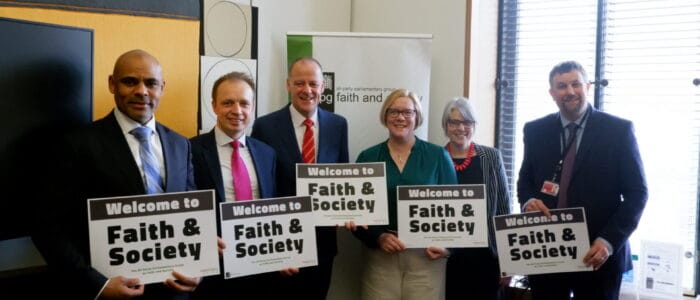‘Religious’ devotion belongs to the realm of faith

How the NHS could be killed by kindness
Although this is a blog for FaithAction and has religion and faith in the title, the focus of this piece is the concept of ‘religious’ devotion as a universal behaviour, in the sense that is probably more emotional than spiritual.
It is sometimes hard to understand that our expectation of the health system and the NHS is unique to the UK. For what is a relatively new institution, its place in the British psyche is unparalleled. The NHS has become something of a secular religion for us in 21st-century Britain – no mean achievement for such a young institution.  And the first and foremost commandment of the system is, ‘Thou shalt be free at point of need!’
And the first and foremost commandment of the system is, ‘Thou shalt be free at point of need!’
Even in the most socialist countries there is not necessarily an expectation that health care is available without this most obvious of barriers (I came across some estimates that in China – still nominally a communist country – the average person puts aside 40% of their income for healthcare costs). In Europe many systems are built on an insurance concept.
When travelling in the USA a number of years ago, I experienced the health insurance system first hand when a member of my family had a health crisis. How strange it was, sitting in what was a notably pleasant, clean and efficient ‘emergency room’ with a clipboard in hand, filling out paperwork when we just wanted to get fixed. It has to be stated that our waiting time was significantly shorter than the four hours high water mark of the UK, but we had insurance.
Previously I had hosted an American youth group who were visiting our own church youth projects, when one of the lads fell and broke his arm. Off we went to A&E, and 30 minutes later the youth leader came to me and said, “I’ve spoken to his parents back home and they are willing to foot any bills – who do we need to pay to get him sorted now?” I have to confess I revelled in informing him that there was no-one to pay: this was Britain and he would have to wait his turn (I was shocked at my own pride and the latent socialist egalitarianism and slight anti-Americanism that surfaced in me, and as penance I went and got pizza for my American party in A&E).
The NHS has been politicised for the 2015 General Election to a whole new level. Although David Cameron has accused the Labour Party of “weaponising” the NHS, I think he has some responsibility in this: not because his Government has had so much effect on the NHS, but because of how he has heightened the language around it. Mimicking Tony Blair’s statement of priorities, David Cameron said in 2006 at the Conservative Party Conference, “Tony Blair explained his priorities in three words: education, education, education… I can do it in three letters: NHS.” This led to a number of statements about the NHS being “safe in our hands”.
 Skip forward to the opening of the Olympics in 2012. What a wonderful night it was, with that great dash of national pride hot on the heels of the Jubilee. It was only later that I started to reflect on the elevation of the NHS to a national devotion – a religion.
Skip forward to the opening of the Olympics in 2012. What a wonderful night it was, with that great dash of national pride hot on the heels of the Jubilee. It was only later that I started to reflect on the elevation of the NHS to a national devotion – a religion.
Here I want to explain my use of the word ‘religion’, and the inherent danger in ascribing to any institution, or for that matter any person, a position which would otherwise be held by a deity. ‘Religious’ devotion changes the position of the ‘deity’ and the devotee. The assumption is that the deity is right and the devotee needs to adapt and shape themselves to respond to this.
In terms of the NHS, the service has become the ‘third rail of politics’. The third rail refers to metro trains in the USA, where the third line is the one through which the power travels.
If you touch it you risk death – hence if you get to close to the NHS, you risk political death. But this devotion to the NHS, and the emotiveness of the topic, mean that we can lose the opportunity to take the position of critical friend.
It seems that every political party in May 2015 is promising an increase in funding for the NHS. Is there an important alternative we are not hearing because our religious devotion prevents constructive criticism and solution search? This can mean that the NHS gets a special protection as the preferred provider, even if this blocks not only the private sector, but also the charity and community sector – which has often proved itself efficient and able to move out of ‘silos’ in a way that the public sector struggles to match.
The NHS needs to evolve. It needs to change and adapt to best serve the people of the UK; they are not there to serve it, with their taxes and slavish compliance to its systems. It should not be put on a pedestal; nor should it be kicked to the floor. We have achieved a lot with the NHS, something which is unique the world over. But we must not make it into a monument. Instead it must be a dynamic organisation marshalling finite resources for its owners – for, as the NHS Constitution says, “the NHS belongs to the people”[1] – not the other way around.
As someone with a special interest in faith, I would argue that religious devotion should stay in the domain of faith and spirituality. It is best not applied to a public sector institution.



